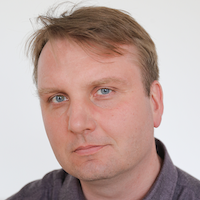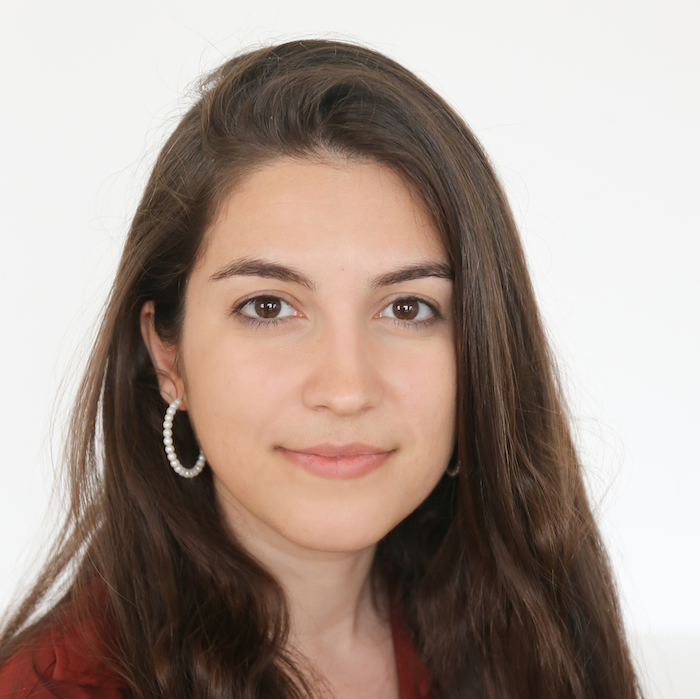Hi from Warsaw,
We are in the middle of summer and the tourist season. How many of you are relaxing or planning to travel abroad, and how many will miss this time away?
In the current issue of our newsletter, we look at how Europeans spend their holidays. In Poland, the seaside beaches may be crowded with tourists, but restaurant owners are reporting much less business than in previous years. Because of high prices, Poles have reverted to the habits of the 1990s: taking their own food on vacation and keeping costs to a minimum.
It also turns out that due to inflation and rising prices, Hungarian residents are behaving similarly, and Greeks can’t even afford a vacation in their own country – it’s simply too expensive.
In this issue, we also look at the important question of whether it’s moral to go on holidays when the country is at war. Our colleague from Kyiv describes how Ukrainians spend their vacations in western Ukraine.
Enjoy reading the 41st issue of the European Focus newsletter!
Michał Kokot, this week’s Editor-in-Chief
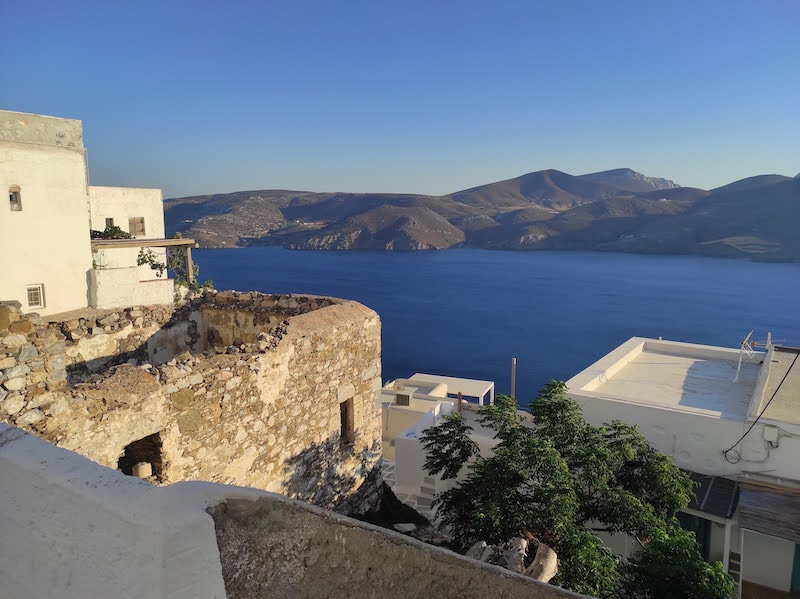
Despite the heat and wildfires, Greece is still one of the most popular holiday destinations in Europe. But Greeks themselves can barely afford a holiday in their own country.
“I chose to have a vacation in my city, taking a few days off work in August,” says Katerina, a freelancer who lives and works in Athens.
According to the Greek Institute of Retail Consumer Goods, one in two Greeks will not holiday this summer, while four in ten who intend to go will cut their spending by more than 50 per cent.
They decide to stay in friends’ or family’s summer houses (26 per cent) and, according to the Business and Retail Association of Greece, save money on essential goods and services. 45 per cent of Greek consumers prefer to save money by cooking during their holidays, and only 16 per cent buy souvenirs or other products such as clothes or jewellery.
“To go to a Greek island is an elusive dream,” says Marita Meleti, a private employee.
In popular destinations such as Mykonos, Santorini, Sifnos, Paros and Milos prices start at 120 euros for a double room. The costs of a ferry ticket to island destinations can often exceed the accommodation cost.
MEGA TV channel reports that a family of four travelling to the island of Paros in July has to spend around 400 euros for economy class tickets. By car, the amount will exceed 600 euros. The cheapest accommodation will cost around 900 euros for six nights. Add to that the costs for food, entertainment, and entry to the beaches, and the total amount will reach 3,000 euros. With an average salary of 1,176 euro per month in Greece this means a significant burden on a family budget.
This year, the figures for domestic tourism are at the same level as in 2022. After almost two years of the pandemic and health restrictions, Greeks hugely needed to vacation, but three in four Greeks said that they would reduce their holidays due to financial constraints. One in four in 2022 said that they would not go on holiday at all.
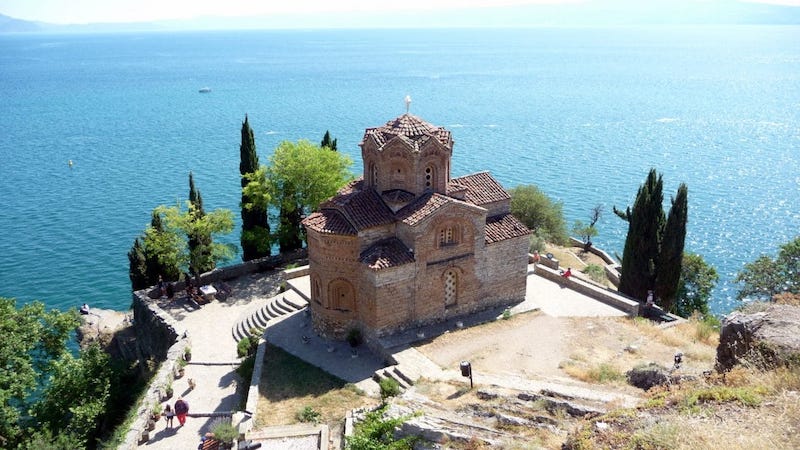
“We are experiencing one of the strongest tourist seasons of all time.”
– Kiril Pecakov, mayor of the lake town of Ohrid.
Failing to be by the sea is the biggest weakness of North Macedonia’s landmark Lake Ohrid, compared to other Balkan hotspots. But this season, scared off by the astronomical price hikes in coastal resorts, many have given Ohrid a try.
According to local mayor Kiril Pecakov most of the guests have come from the Netherlands, UK, Poland, Turkey and Serbia.
An ancient town, breathtaking scenery and one of the oldest and clearest lakes in the world, known as ‘The Macedonian Sea’, does not sound so bad after all.

It’s a few minutes after noon on the beach at Hungary’s holiday destination Lake Balaton and some families are already packing their stuff to return to their small rented houses. Although there are many food stalls and restaurants, they opt for a home-cooked lunch to save money.
The beach – lined with towels and colourful inflatable unicorns in the grass – becomes deserted for a few hours. The noise of children playing, adults gossiping under the willow trees and waves hitting the rocks disappears. When families return in the afternoon, many walk with cooler bags in hand, bringing sandwiches and cans of beer.
“We are a family of four. Even with a family discount, the daily entrance fee to the official beach is eight euros. One lángos (deep-fried dough with cheese and sour cream) costs five euros. I would probably have to spend 50 euros there every day,” explains a beachgoing dad who is staying at the free beach of Siófok, a bit further away from town.
In a country where the average salary is 972 euro per month and inflation in June was still above 20 per cent, that is a lot of money.
“For the same price, I can go and swim in the sea,” explains 39-year-old Anna on why she chose Croatia this summer. Such costs leave the future uncertain for Lake Balaton.
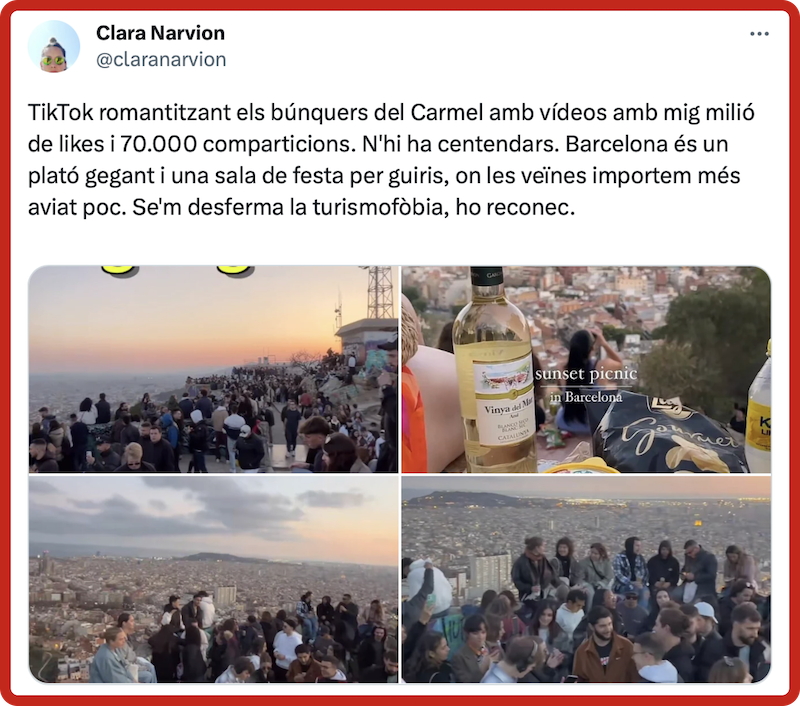
Should Spain consider a degrowth in tourism? This is the view of many people who are angry about drunken holidaymakers taking over cities and their attractions, as this bitter tweet from a Barcelonian shows.
Spain, once a country where tourism meant money and development, is reaching a tipping point. It’s not that it doesn’t want tourists any more, but some places have reached a limit.
In certain locations the government is now calling for ‘quality tourism’ instead of ‘drunken tourism’, which activists say is a euphemism for ‘rich people tourism’ and won’t solve the problems that the tourism industry causes to nature, cities and rising house prices.
The blame lies not with the tourists (according to one report, even the tourists in Barcelona think there are too many of themselves), but with the local administrations: they opt for ever-increasing numbers of tourists, instead of the less popular measures of restricting business.
What can they do? Control the time visitors can spend at monuments and sights, refuse to grant new licences for rental accommodation and, in extreme cases, limit the number of tourists.
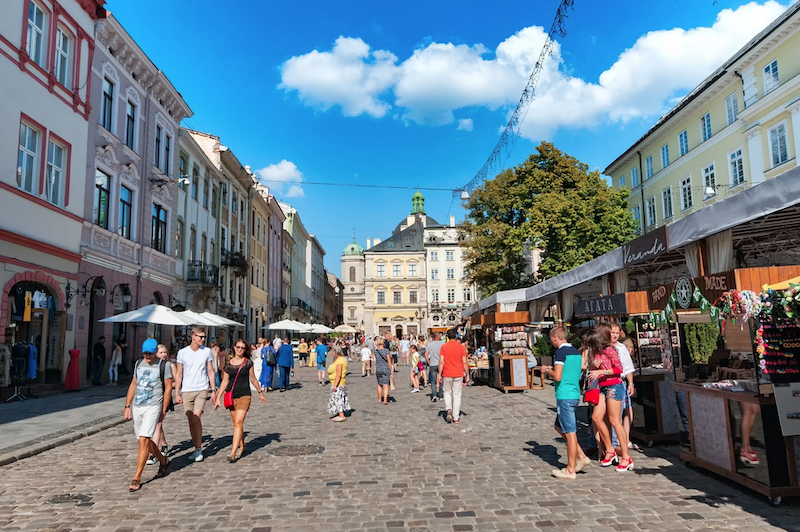
Lviv in the summer of 2023 has the vibe of a holiday resort. Here, air-raid alarms are rare, and I have this feeling of stability and safety that most Ukrainians have forgotten. This is the place where I sleep well.
When I was there two weeks ago, I was struck by the bustling restaurants, bright souvenir shops, street performers and market stalls. This was in stark contrast to Kyiv, Dnipro, Odesa, not to mention Kharkiv, which is shelled almost daily by the Russians.
In wartime, west Ukraine has become a safe haven for many from regions closer to Russian troops or falling rockets. People go there to recover, and to get some rest from stress and threats. Some establishments near the precious mineral water springs are booked out well into October. This has never happened before. And that is a blessing.
Not only do civilians recover in Lviv, but also military personnel. Several clinics in the region have been converted into rehabilitation centres, and the biggest prosthetics facility called Unbroken is also here. The land forces academy and army units are located in the city, and the military often observe the jubilant civilian life without fascination.
“Here are so many wounded people and soldiers, who are spending a free day before they are sent to the frontline. If a soldier visits a bar, he sees many tourists, men of his age, resting, having fun, and drinking alcohol. They won’t risk their lives tomorrow, but he will,” my former colleague who was mobilised and had training in Lviv, desperately said.
But many comrades at the frontline see this situation as natural and even positive. As MP-turned-soldier Yehor Firsov said: “When I see a full restaurant, it feels so good. We maintain the front so that they can continue to live a life.”
Thanks for reading the 41st edition of European Focus!
Regardless of how you spend your vacation, we wish you a good break.
Please share your reactions with us by writing to info@europeanfocus.eu.
The European Focus team is also taking an extended holiday break. We will be back on September 6.Michał Kokot

